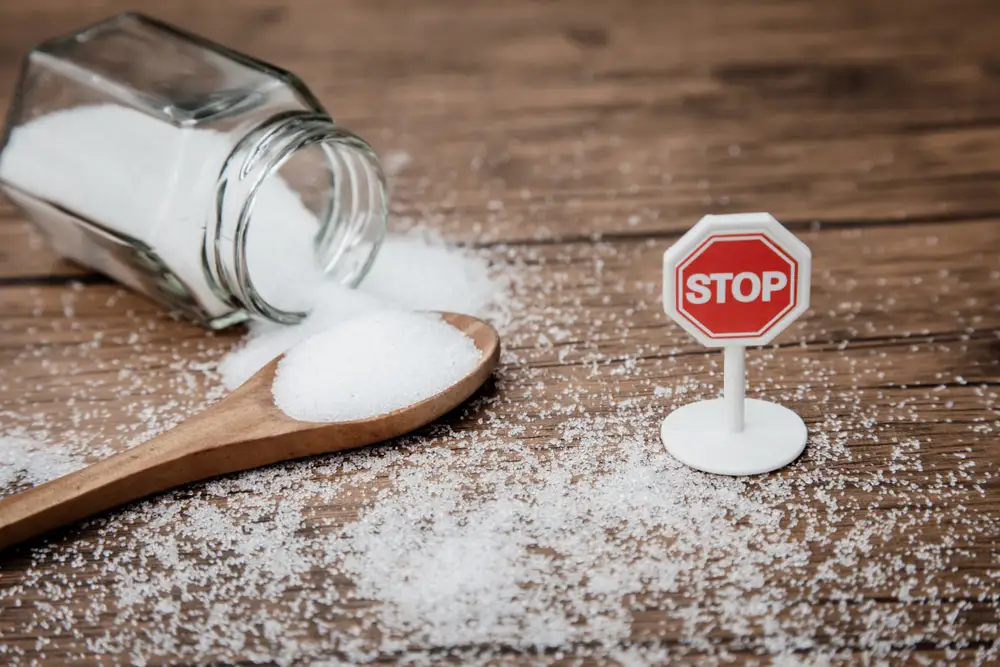Sleep is incredibly important for your health. It repairs your heart and blood vessels, improves your focus and productivity, and reduces the risk for a number of fatal diseases6. Improving your sleep hygiene and getting better quality sleep is one of the best things you can do for your overall health.
Good sleep hygiene is all about building good habits. These are the most effective sleep hygiene methods that can help you settle into a healthier routine, and improve the quality of your sleep.
The Most Effective Sleep Hygiene Strategies
Bedroom
Keep Your Bedroom Dark And Cold
Your body’s circadian rhythm regulates your sleep-wake cycle (with a chemical called melatonin), and it’s driven by light and temperature. Keeping your bedroom as dark as possible helps to maintain your circadian rhythm, and makes sleep itself much easier.
The same goes for temperature – if possible, keep your bedroom between 16 to 20°C for a good night’s sleep.
Block Out Noise
Noise can jolt us awake in the night, interrupting our natural sleep cycles and affecting the quality of our sleep. Earplugs with an NRR (noise reduction ratio) of 25+ do a great job of blocking out noise.
Or you might consider using an app that generates white noise such as rain – this website has a huge selection of wonderfully-relaxing, noise-blocking sounds.
Remove Screens From Your Bedroom
Televisions and phones are bright, loud, and stimulating, so removing them from your bedroom will help you to get better sleep. For your phone, try to form a habit of never using it in your bedroom, so that you start to build the association of bedroom = sleep.
Get A Quality Mattress And Pillow
If you’re sleeping on a mattress that is lumpy, bouncy, or so soft that it envelopes you, you’re probably not getting good quality sleep. Your mattress should support your whole body, and keep your spine in a neutral position regardless of how you sleep.
The same goes for your pillow—make sure that it suits your preferred sleeping position, and properly supports your head and neck.
Dim Your Lights Before Bedtime
To prepare your body for sleep, dim your bedroom lights at the start of your bed routine. This will help you to relax and get into the right frame of mind for falling asleep.
Get up if you haven’t fallen asleep after 20 minutes
It’s important to have an association between being in bed, and being asleep. So if you’re tossing and turning for 20 minutes, get up and do something relaxing for a little while (soft music, meditating, stretching, etc.) before trying again. If you keep trying to sleep for too long, you’ll probably become more frustrated, and may build a negative association with your bed.
Habits
Consistent Sleep And Wake Times
Things are easier if they’re part of a routine, including sleep. It can be tempting to stay up till midnight to finish the latest series of The Crown, but you’ll pay for it the next day (possibly the next few days).
While it may seem a little boring, going to bed at the same time every night will help you to settle into a healthy schedule, where you give yourself a much better chance of getting enough sleep. Try to aim for eight hours each night, adjusting this based on the amount of sleep you personally feel you need. When you’ve had enough sleep, your body will naturally wake itself up, which should be around the time you need to get up to start your day. If this means you have to go to bed at 8pm, so be it.
If you’ve been sleep deprived for a long time – say only five hours of sleep each night – instead of leaping to the full eight hours or more, adjust your schedule gradually so that your body gets used to it.
Exercise
Exercise is one of the healthiest things we can do for ourselves, and it may also improve our sleep. Moderate aerobic exercise increases the amount of slow wave sleep that we get, stabilises our mood, and decompresses our mind, which are believed to help us sleep1.
Relaxing Pre-Sleep Routine
As already mentioned above, phones are a curse to good sleep because they affect our circadian rhythm, and put us into a state of excited stimulation. Instead, try to create a pre-sleep routine that relaxes you. There’s plenty of relaxing things you can do before going to bed – full-body stretching, meditation, slow music, or reading a good book.
Avoid Large Meals Three Hours Before Bedtime
Our body needs time to digest meals, so if we eat large and heavy meals close to bedtime, we may get heartburn, reflux, and even insomnia2. Food also prompts the release of insulin—a chemical linked to our circadian rhythm – so eating dinner at a regular time each night can help to keep this balanced.
Avoid Coffee Six Hours Before Bedtime
Caffeine is a stimulant. It makes falling asleep and staying asleep more difficult, so if you’re a coffee drinker, have your last cup no later than six hours before you go to sleep3.
Avoid Alcohol Four Hours Before Bedtime
Alcohol disrupts your sleep cycles and degrades the quality of your sleep. Even one serving per day has shown to decrease sleep quality by up to 24% for certain people (although more research is needed in this area).
Avoid drinking alcohol at least four hours before you go to sleep.
Stop Smoking
As well as giving you cancer, breathing problems, heart disease, diabetes, and a range of other horrible effects too numerous to mention, smoking affects your sleep quality. As a stimulant, it masks your exhaustion, fragments your sleep, and causes snoring and sleep apnea. Stopping smoking is one of the best things you can do for your health4.
Get Enough Daylight
Our circadian rhythm is regulated by the rising and setting of the sun, so that we’re naturally awake during the day, and sleepy at night. Getting plenty of daylight helps to keep this in the proper time, which is as easy as going for a couple of short walks throughout the day.
Avoid Naps
Naps can be a highly effective way to recoup energy, but if you have trouble sleeping at night, it’s best to avoid them.
Sleep On Your Back
Your sleeping position is usually an entrenched habit that is difficult to break, but if you can, try to sleep on your back as much as possible, as it’s the best position for good quality sleep.
Try Lavender
Research on the health-effects of essential oils is limited, but lavender is widely recognised as a sleep aid. It’s shown to increase the amount of slow and deep-wave sleep of study participants, who report feeling a sense of vigour upon waking up5.
You can sprinkle liquid lavender on your pillow, or use a diffuser.
Use Your Bed For Sleep And Sex Only
As discussed above, it’s important to build an association between your bed and sleep. When this happens, you’ll be able to fall asleep much more easily, and may find that you have better quality sleep.
Don’t neglect sex with your partner either – this has shown to decrease your stress levels, and increase your love for each other, both of which can help you get a better night’s sleep.
Sign And Symptoms Of Poor Sleep Hygiene
Sleep deprivation has many tell-tale signs and symptoms, which include:
- Poor concentration
- Low productivity
- Irritability
- Reduced hand-eye coordination
- Impaired judgment
- Grogginess throughout the day
- Emotional issues like depression
If you’re worried about poor sleep hygiene, talk to your doctor about your concerns, and try to incorporate as many good sleep habits as possible into your routine.
References
- John Hopkins Medicine: Exercising for Better Sleep, Hopkins Medicine
- Brandon Peters, MD, 2020, How Long to Wait Before Sleeping After Eating, Very well Health
- 2013, Sleep and Caffeine | Benefits and Risks, AASM
- Brandon Peters, MD, 2020, How Does Smoking Cigarettes Affect Sleep and Insomnia?, Verywell Health
- Chaunie Brusie, 2020, 3 Essential Oils for Better Sleep, Healthline
- Atli Arnarson BSc, PhD, 2020, Healthline – 10 Reasons Why Good Sleep Is Important, Healthline
What Causes Mouth Ulcers? How To Treat & Prevent Them Effectively
Mouth ulcers are a common oral condition that affect most people at some point in their lives. They can be uncomfortable, but they are usually harmless and will heal within 10 to 14 days without treatment. Here’s everything you need to know about mouth ulcers, including what they are, what causes them, the best treatments,…
Acute Vs Chronic Medical Conditions
No matter how old or young you are, we are all susceptible to acute and chronic medical conditions. Both conditions differ in how long they last and how severe the diagnosis is. An illness or condition can be as simple as the flu, or in a more severe case cancer or arthritis. Whether it is…
How Much Sugar Per Day?
Sugar is a type of carbohydrate and a source of energy for our bodies. It can occur naturally in foods like fructose in fruit, glucose in fruits and vegetables, and maltose in wheat and barley. However, manufacturers also often add sugar to extend the shelf life of foods, improve their appearance and/or make them taste…




